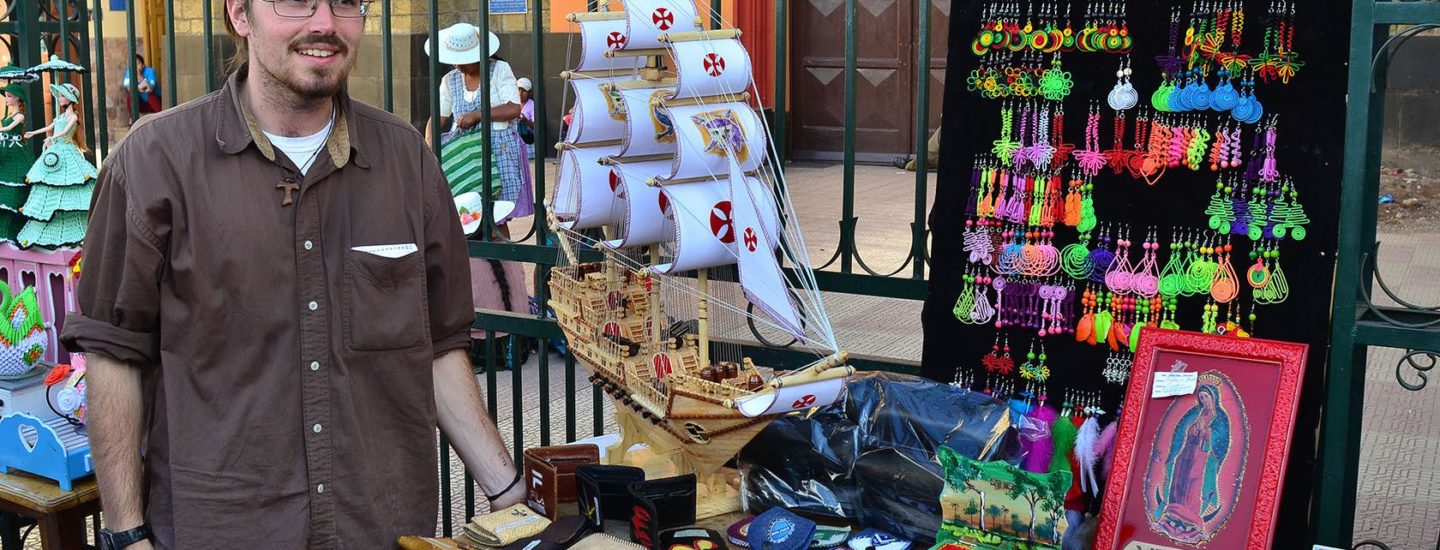Reality Strikes

Editor’s Note: The following is part of our daily holiday series celebrating “The Shared World.” As part of his ministry, Jeff works alongside the work delegates in the different prisons to coordinate material purchases and machinery upkeep for the inmates’ workshops. Through his relationships with the artisans and leather workers, he also works as one of their vendors. With these sales the inmates are able to cover the cost of life within the prisons, including entrance fee, rent, and food costs.
“Without any sales, we don’t eat.”
I was sitting across the table from one of my artisan friends in El Penal de San Antonio, sharing a meal after a fairly successful market day. He had invited me to share a meal with him – a plate of pollo, arroz, y papas fritas – and his comment about sales struck me as odd.
Through my experiences as one of the vendors for the prison’s work groups I’ve become more aware of this particular part of their reality. It has, in some ways, become my reality.
In the Cancha, I sell alongside some former inmates who work as vendors selling for friends who are still inside the prison, keeping a small cut of the profits. We don’t eat that day until they’ve made enough to cover their lunches.
Without any sales, we don’t eat.
This reality is not unique to prison inmates, nor to Bolivia, but what made the comment stick out to me was that it followed two days of an intense hunger strike in four of the prisons, protesting the government’s continued negligence in paying their prediarios.
These prediarios of 6.60 Bs (less than $1) per-day are paid every month to each inmate. The 6.60 Bs is theoretically sufficient to cover the cost of a daily bowl of soup and prevent starvation in the prisons. I say theoretically because the inmates who most rely on these payments give the majority of what they receive to pay off what they still owe for their entrance fee.
The government routinely faults on a few months of these payments at a time, and so in protest all stores and restaurants within the prison closed, the prison doors were closed, and for those two days everyone passing by could hear the chants coming from within the prisons.
It amazed me that after the hunger strike, it was sales, not the prediario, that my friend connected with eating. This spoke to a desire that we all share: to work, and provide for ourselves.
As is true of most of the men I work with, he is a skilled craftsman who simply cannot support himself with what he can sell at the door of the prison.
But there we sat after a good sales day, sharing in the joy of a shared meal.
With sales, we can eat.
[button type=”small” color=red url=”/sharedworld/”]Share Christ’s Peace this Christmas: Give a Gift to FMS[/button]
[button type=”small” color=grey url=”/tag/the-shared-world/”]Read more stories of “The Shared World”[/button]
Tagged in:
